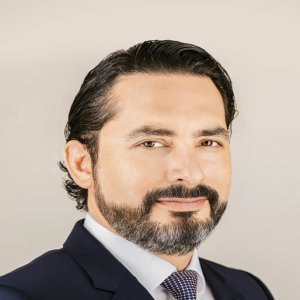International Standards, Sovereignty and Popular Consultation

STORY INLINE POST
Q: What is needed for Mexican mining to advance down the path to legal certainty and how can this be achieved?
A: While the AMLO administration has shown sympathy and interest in the industry’s problems and in providing continuity to ongoing programs and projects, it has also taken some steps that have caused uncertainty in other sectors. Mexico is sending international and national investors both good and bad signals, when it should be providing investors with certainty. To achieve this goal, the first step is to appoint expert officers in their fields and empower them with all the tools and authority they need to work properly. The government must also broadcast one message to all industries because if certainty is promoted for one sector but uncertainty is created in another, nobody will know what to expect.
Q: What is the best way to reform the Mining Law to prevent uncertainty and harm in the market?
A: The first step is to consult mining law experts to find out if the Mining Law really needs to be amended and how. I think that overall, the Mexican Mining Law is not bad but some technical clauses could be enhanced. For example, current law does not necessarily prevent concessions overlapping. Also, many believe that granting a concession should be subject to popular consultation. The government must be smart when addressing this initiative. If there is a legal reform regarding public consultation, it might kill the industry. People should know that mining is divided into exploration and production and the former has no impact on the way of life in communities.
In this hypothetical scenario, from my personal point of view, consultation should follow only if a project has resources, is profitable and will move into the development phase. The concessioner should be given the right to explore and find out if there is value in the concession. Above all, the social license for projects must never be used as a flag for political purposes. Also, public consultation in any industry does not have to mean that the government loses the possibility to govern. In this regard, the mining concessioner must be understood as an individual doing a job that corresponds to the nation and for its benefit.
Q: Why is it important to homologate Mexican mining regulations to international standards and which categories are most pressing for amendment?
A: I think there is a misconception of international treaties worldwide. We cannot ever consider that a treaty, regardless of how good it is, will have the same effect in different countries with different realities. International treaties must set the foundations for a more uniform world but cannot be equally enforced in all contexts. International treaties must be implemented in Mexico but considering our reality and legal framework and not just overruling these. When a foreign company comes to Mexico, it often lacks the knowledge about local regulations so it attempts to do things as it would in its own country.
Q: What is your assessment of the role of NGOs in Mexican mining?
A: I think that NGOs in Mexico live in a world of impunity because the government is too scared when dealing with them and it often does not demand the same accountability and transparency that mining companies must abide by. This is a key issue for the industry. Mining companies must take care of the environment and earn the social license to operate. But if anyone claims to be an interested party in defending communities and the environment, regardless of their origin, they should comply with the same regulations that rule the industry. NGOs should have the obligation to show the government the real interest they have in claiming to defend a community. In my experience, in most cases, NGOs in mining do not care about the population; rather, they want to receive funds to create conflict and stop the development of projects. The government has shown that it is afraid of NGOs but it should regulate them as it does companies. If NGOs are as transparent and pure as they claim to be, they should have no problem opening their books to the public and being subject to anti-corruption policies.
























